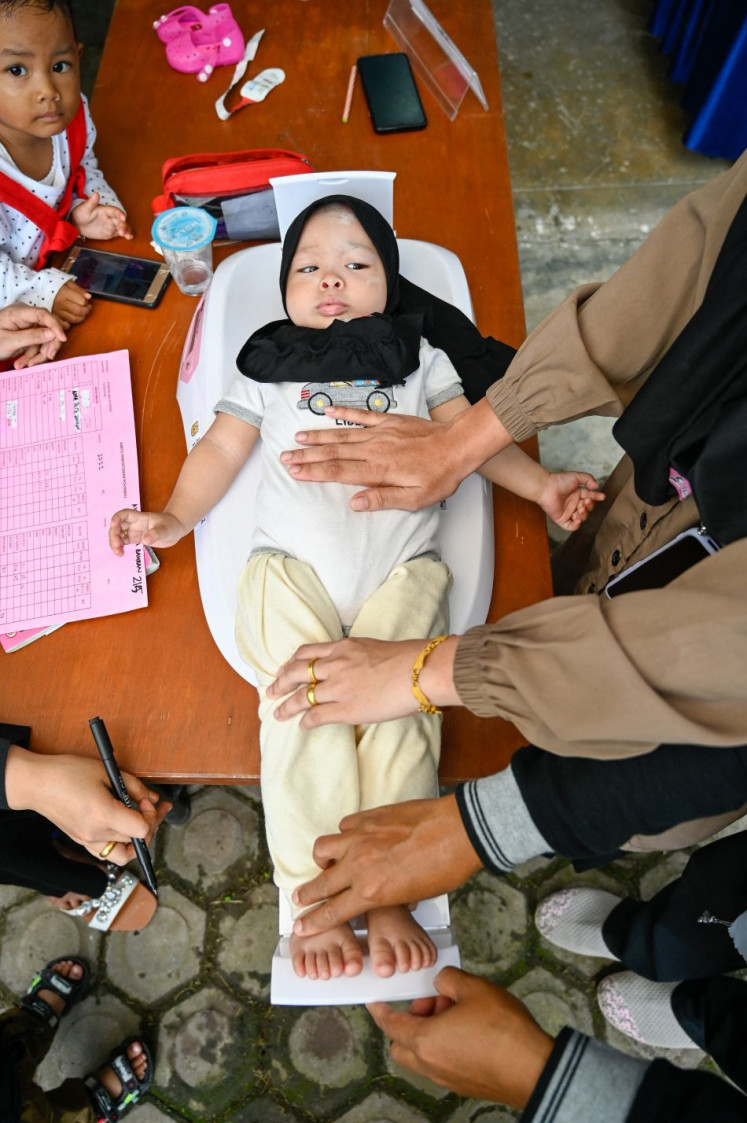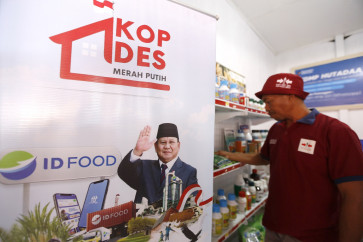Popular Reads
Top Results
Can't find what you're looking for?
View all search resultsPopular Reads
Top Results
Can't find what you're looking for?
View all search resultsRed and White cooperatives: Culture, potential for bad debts and political interests
Transparency, empowerment and independence are key to making sure that the recently launched KMDP initiative does not suffer a fate similar to the cooperatives of the reform era.
Change text size
Gift Premium Articles
to Anyone
O
n July 21, President Prabowo Subianto launched 80,000 cooperatives in 80,000 villages under his Red and White Village Cooperatives (KDMP) program, a move seen as part of efforts to restore the economy to its constitutional direction, as outlined in his book, Paradoks Indonesia (Indonesia’s paradox).
The government also announced that village cooperatives (Kop Des) would receive soft loans from state-owned banks and regional development banks (BPDs). The potential credit disbursement could reach Rp 240 trillion (US$15 billion), or around 10 percent of the 2025 state budget.
On paper, this is a strategic step to boost the people's economy by expanding the base of micro and small businesses. It is hoped that with this assistance, village cooperatives will be able to stimulate the rural economy and become an independent economic force through a production and distribution system controlled by the people.
Of course, these grand ideas and ideals must be supported by rural communities, which have long been neglected in development policies. However, this does not mean we should ignore the bitter, past experiences of cooperatives.
There has been much criticism of the top-down mentality that often leads to the failure of many populist programs that have "good intentions", but are not designed with common sense and field experience.
The literature on cooperatives in various countries present no success stories of government-established cooperatives. Many countries have tried a "top-down grand design" approach to developing the people's economy, which ultimately led to corruption, budget waste and long-term failure.
Uganda and India provide a valuable lesson how a top-down cooperative movement became a breeding ground for corruption among local officials and the political elite, and then collapsed due to a lack of transparency and support for real needs.



















